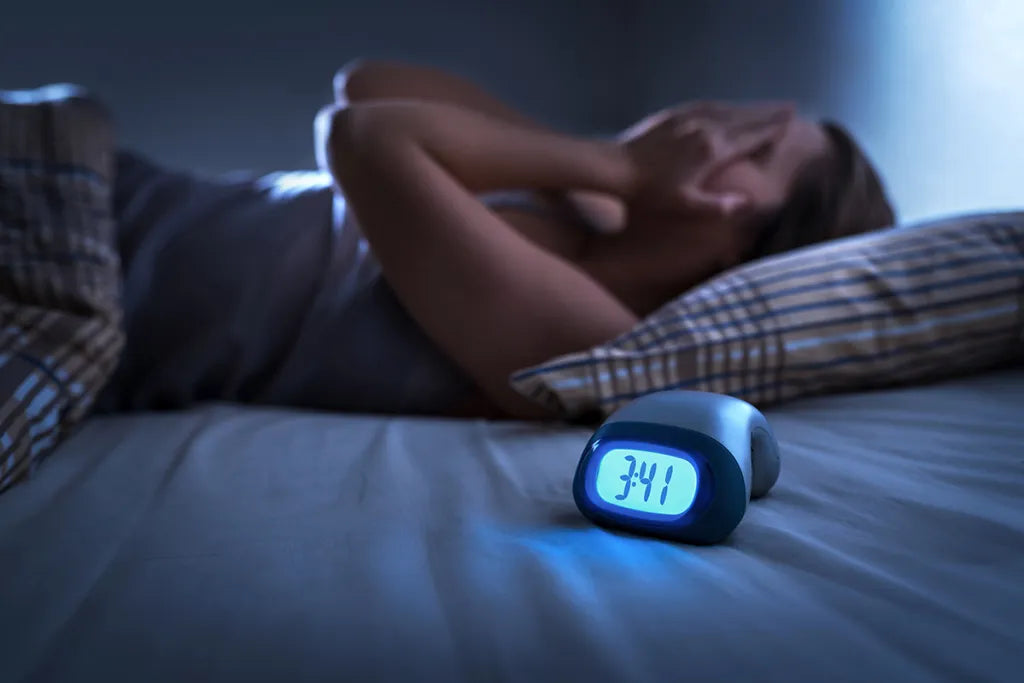Tossing and turning in bed, staring at the ceiling while the world around you sleeps—insomnia can be a frustrating and exhausting experience. If you find yourself unable to fall asleep night after night, fear not! This article unveils engaging strategies to help you conquer sleeplessness and find solace in the arms of a restful slumber. From relaxation techniques to sleep-friendly environments, we will explore evidence-based tips to address insomnia and promote a peaceful night's sleep.
a) Create a Sleep-Conducive Environment: Make your bedroom a sanctuary for sleep by minimizing noise, reducing light exposure, and ensuring a comfortable temperature.
b) Unplug from Screens: Disconnect from electronic devices at least an hour before bedtime. Engage in activities that promote relaxation, such as reading a book, taking a warm bath, or practicing gentle stretching exercises.
c) Calming Rituals: Incorporate soothing rituals into your routine, such as drinking herbal tea, practicing mindfulness meditation, or writing in a gratitude journal. These activities can help calm your mind and prepare you for sleep.
a) Stress-Reduction Techniques: Engage in stress-reducing activities throughout the day, such as exercise, deep breathing exercises, or engaging in hobbies that bring you joy. By managing stress levels during the day, you create a foundation for better sleep at night.
b) Cognitive Behavioral Therapy for Insomnia (CBT-I): Consider seeking the guidance of a sleep specialist who can help you address the negative thoughts and behaviors that contribute to insomnia. CBT-I is an evidence-based approach that helps reframe thoughts and establish healthier sleep patterns.
c) Relaxation Techniques: Practice relaxation techniques, such as deep breathing, progressive muscle relaxation, or guided imagery, to calm your mind and body before bed. These techniques can help alleviate anxiety and promote better sleep.
a) Stick to a Consistent Sleep Schedule: Establish a regular sleep-wake schedule, even on weekends. Consistency helps regulate your body's internal clock and promotes better sleep.
b) Create a Sleep-Friendly Environment: Ensure your bedroom is quiet, dark, and cool. Use earplugs, blackout curtains, or white noise machines to minimize external disturbances that can disrupt sleep.
c) Limit Stimulants: Minimize or avoid caffeine, nicotine, and alcohol, especially in the evening. These substances can interfere with sleep and contribute to insomnia.
Insomnia can be a frustrating challenge, but armed with knowledge and effective strategies, you can reclaim your nights of peaceful sleep. By understanding insomnia, establishing a pre-bedtime routine, managing stress and anxiety, optimizing sleep hygiene, and seeking professional help when needed, you can overcome sleeplessness and restore balance to your life. Remember, a good night's sleep is within reach, and you deserve the rejuvenating power of restful slumber.
References:
- National Sleep Foundation. (n.d.). Insomnia. Retrieved from https://www.sleepfoundation.org/insomnia
- Mayo Clinic. (2020). Insomnia. Retrieved from https://www.mayoclinic.org/diseases-conditions/insomnia/symptoms-causes/syc-20355167

